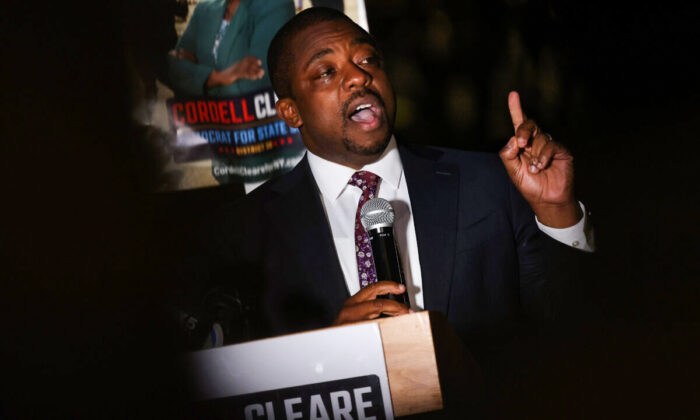An appeals court rejected Brian Benjamin’s argument that a bribery conviction based on campaign contributions may not be ‘inferred from the circumstances.’
A Dec. 16 ruling by the U.S. Supreme Court means that former New York Lt. Gov. Brian Benjamin, a Democrat, must stand trial on charges of seeking campaign contributions in exchange for a grant from the state.
The nation’s highest court left in place a March ruling by the U.S. Court of Appeals for the Second Circuit that reinstated the federal bribery and wire fraud charges against Benjamin that a federal district court dismissed in December 2022.
“Constituents give to candidates they hope will take actions aligned with their interests,” he said. “Candidates, if elected, take actions that often further the interests of those who helped elect them. This is not bribery; it is democracy.”
In the case, the government has to prove that there was an “explicit” quid pro quo agreement to trade the contributions for an official favor, and in recent years, the federal courts of appeals “have utterly failed to agree on what ‘explicit’ means and when the standard applies,” the petition stated.
Related Stories


In his petition, Benjamin recounted that prosecutors said in 2019 that he forwarded a $50,000 state grant to a nonprofit controlled by a developer from Manhattan’s Harlem neighborhood, which Benjamin represented at the time as a state senator. The developer then gave Benjamin’s reelection campaign thousands of dollars through several checks made out to relatives and a limited liability company, according to the indictment.
The decision does not conflict with any other circuit court’s precedents, and Benjamin’s challenge was brought too early in the criminal proceedings, according to the government’s brief.
“[The Supreme Court] has repeatedly denied in other cases presenting that issue, and it should do the same here,” the brief stated.
The Supreme Court has been making it more difficult in recent years for the federal government to carry out public corruption prosecutions.
The high court held that federal law prohibits bribes to state and local officials but does not make it a crime for those officials to accept gratuities for their past acts. A bribe is payment for future behavior; a gratuity is payment for an act that has taken place.
The Epoch Times reached out for comment to Benjamin’s attorney, Barry Berke of Gibson, Dunn, and Crutcher in New York City, and the U.S. Department of Justice, but no replies were received by publication time.
Isabel van Brugen contributed to this report.

















































